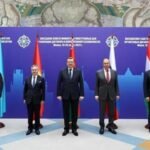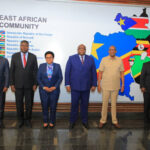Tanzania is celebrating a proud moment after the United Nations Educational, Scientific and Cultural Organization (UNESCO) officially recognized Kiswahili as one of its working languages.
The historic decision was announced on November 11, 2025, during the organization’s General Conference in Samarkand, Uzbekistan, following a proposal tabled by Tanzania earlier this year.
Tanzania’s Ambassador to France, Ali Mwadini, expressed his joy moments after the resolution was passed unanimously, describing it as a major victory not only for Tanzania but for all Africans who value the cultural and linguistic heritage of Kiswahili.
“I am delighted to share the wonderful news that the UNESCO General Conference has unanimously approved a resolution to recognize Kiswahili as one of its official languages,” said Ambassador Mwadini. “This milestone reflects Tanzania’s commitment to promoting Africa’s linguistic identity and global inclusion.”
The decision means Kiswahili will now be used in official UNESCO documents, statements, and meetings alongside other major international languages. It also marks a powerful step toward amplifying Africa’s voice in global conversations.
Kiswahili, a Bantu language spoken by more than 200 million people across Africa, has deep historical roots along the East African coast, particularly in Tanzania, Kenya, and the Democratic Republic of Congo. The language has long been recognized as a unifying tool in the region and is already an official language of the African Union.
Also Read; Museveni Confirms Arrest of Missing Kenyan Activists
The ambassador emphasized that Tanzania has been at the forefront of efforts to elevate Kiswahili internationally. “Our mission in Paris, together with our partners at UNESCO, worked tirelessly to ensure this proposal was understood and appreciated. Today, the world has embraced Kiswahili as a bridge of unity and communication,” Mwadini added.
Experts in linguistics and cultural diplomacy have hailed UNESCO’s decision as a landmark achievement in promoting diversity and inclusion. Many see it as part of a broader global recognition of indigenous and African languages that have shaped world culture and communication.
According to UNESCO’s 2021 declaration of World Kiswahili Language Day, the organization acknowledged the language’s contribution to peace, dialogue, and sustainable development. This latest move elevates Kiswahili’s status from symbolic recognition to full operational use within the UN system, further entrenching its global relevance.
Analysts believe the inclusion of Kiswahili at such a high diplomatic level could inspire similar recognition for other African languages in the future. “Language is more than communication—it’s identity and pride,” said one cultural commentator in Dar es Salaam.







